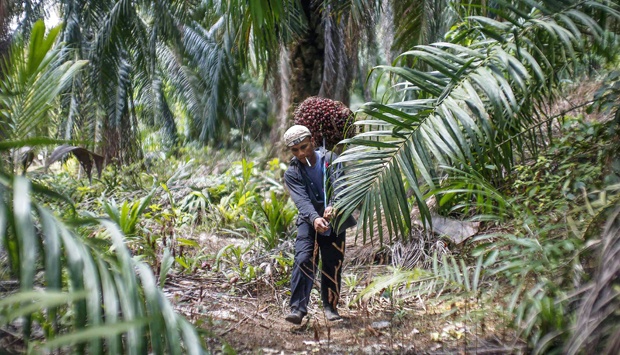Playing with Fire
Translator
Editor
Kamis, 1 Januari 1970 07:00 WIB

TEMPO.CO, Jakarta - The police should not play with fire when dealing with land disputes between communities and oil palm companies, such as the dispute in Pulau Laut Tengah, South Kalimantan. The police should not have taken the side of the company, let alone allow itself to be used to intimidate the local community.
The police went too far when they summoned and searched for local figures during a protest at the South Kalimantan Regional Council. Pulau Laut Tengah farmers were protesting for the sake of their survival and livelihood, under threat because of Multi Sarana Agro Mandiri's presence. Protests are lawful as long as they do not spiral into anarchy, as the constitution guarantees freedom of expression.
Law enforcers abused their authority when they detained M. Yusuf, a journalist for the online news Kemajuanrakyat.com, who was covering the protest. The police should not have neglected the fact that a journalist's duty to gather and disseminate information is guaranteed by the law, and by the constitution.
It is not within the police's authority to appraise, let alone investigate inaccurate reporting. Journalism is the domain of the Press Council and the journalist association. It is a different story when a journalist uses his or her work to extort; this would be a criminal act that must indeed be legally processed.
But instead, the police charged the journalist in question under the information and electronic transactions law, specifically the law's articles on defamation and hate speech. Using these articles to send the journalist to prison is an abuse of authority, and a threat to the freedom of press.
The information and electronic transactions law has been the subject of debates because of how easy it is for the law to be misused. In the Criminal Code, similar laws fall under the category of ambiguous articles-articles that are open to interpretation and have claimed numerous victims. Ironically, in the information and electronic transactions law, defamation and hate speech are given the more severe sanction of four years in prison.
In advanced democratic countries, defamation is no longer the territory of criminal law. Those who feel their reputations have been harmed can indeed file civil suits, but the process is not easy. A number of requirements must be met, among others: the plaintiff must be an individual and not an institution, and there must be proof of malicious intent-for example deliberately spreading information known to be false or deliberately neglecting to verify information.
The defamation law was clearly misused in regard to the land dispute. The police should have referred to past agrarian disputes. A legal approach often exacerbates conflict, which is why the National Police's leadership must rectify its subordinates' misconduct before it is too late. The police must immediately put a stop to the summons issued to Pulau Laut Tengah residents and release the journalist.
The government and law enforcement should instead facilitate dialogues between the local community and the company, so that they can arrive at a long-term solution. Getting the local community involved in managing (the Pulau Laut Tengah) oil palm estates alongside the company would be more beneficial than driving locals away from the land they have tilled for decades.
Read the full article in this week's edition of Tempo English Magazine




















